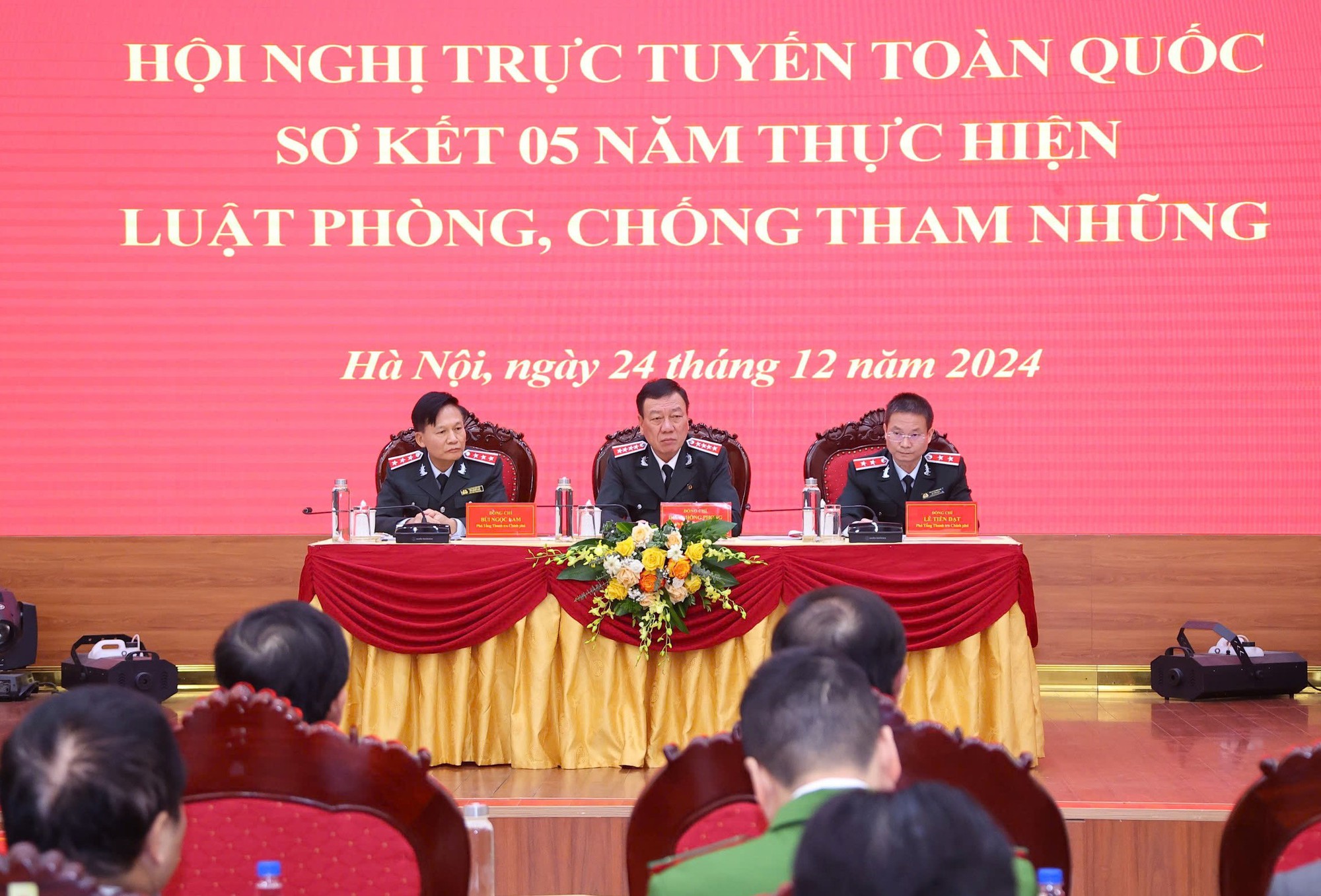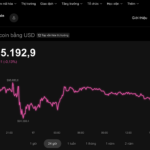According to the Government Inspectorate’s report at the conference, the implementation of the Law on Corruption Prevention and its guiding documents has yielded numerous positive outcomes across various aspects of the work. Ministries, sectors, and localities have focused on inspecting and supervising the implementation of the code of conduct for officials and public employees in performing their duties and public service.

Government Inspectorate organizes a national online conference to review 5 years of implementing the Law on Corruption Prevention. Photo: Government Inspectorate
Along with this, they have organized the rotation of positions for those with authority and power in accordance with the Law on Corruption Prevention and its guiding documents. In the past five years, 235,271 civil servants and public employees have undergone job rotation to prevent corruption.
The inspection of assets and incomes of officials and civil servants has also been properly implemented by ministries, sectors, and localities. From 2020 to 2024, more than 2.06 million people declared their assets and incomes. Of these, 37,106 people had their assets and incomes verified. As a result of the inspections and verifications, 147 people were disciplined for violating regulations on asset and income control.
According to the Government Inspectorate, ministries, sectors, localities, agencies, organizations, and units have strictly adhered to the provisions on the responsibility of heads of agencies in corruption prevention and negativity control.
From 2020 to 2024, 264 heads and deputy heads of agencies were disciplined for negligence that led to corruption, and 73 people were criminally handled for the same reason.
Along with the achievements, the Government Inspectorate also pointed out that corruption remains a complex issue with serious nature, involving large amounts of assets and high-ranking individuals. The effectiveness of corruption prevention measures has been limited.
The rate of recovery of corrupt and lost assets remains low, while the value of assets to be recovered in corruption and negativity cases is still significant. The legal provisions on handling corrupt individuals are not strong enough and lack deterrence, thus falling short of achieving the desired effectiveness in corruption prevention.
At the conference, delegates presented theses and contributed suggestions to improve mechanisms and policies in corruption prevention work. Ms. Nguyen Quynh Lien, Head of the Democracy, Supervision, and Social Criticism Board of the Central Committee of the Vietnam Fatherland Front, proposed to promote the role of society in corruption prevention.
To achieve this, Ms. Lien suggested that specific regulations are needed to enable the Vietnam Fatherland Front, socio-political, professional, and business organizations, the press, and people to proactively participate, instead of only getting involved when assigned or invited.
Emphasizing the resolute, persistent, relentless, and uninterrupted nature of corruption prevention work, without any “forbidden zones” or exceptions, Inspector General Doan Hong Phong stated that after more than five years of implementing the Law on Corruption Prevention, corruption has been gradually curbed and shows a decreasing trend.
Prior to the conference, Mr. Doan Hong Phong mentioned cases that have attracted public attention, such as Van Thinh Phat, AIC Company, Phuc Son Corporation, and Thuan An Group, as evidence of the political determination in corruption prevention work, with no “forbidden zones” or exceptions.
In addition to improving mechanisms and policies on corruption prevention, Mr. Doan Hong Phong suggested that the legal corridors on socio-economic management should also be improved to close loopholes and ensure unity and consistency, preventing individuals from taking advantage to engage in corruption and negativity.
According to the Inspector General, inspection, audit, investigation, prosecution, judgment, and enforcement agencies need to pay attention to completing their organizations, apparatus, and personnel to effectively carry out corruption prevention work. The inspection agencies should also enhance the detection and handling of corruption through inspections and promptly transfer cases with criminal signs to investigation agencies.
Inspector General Doan Hong Phong also proposed to promote the role of society in corruption and negativity prevention, strengthen the supervision of the National Assembly and People’s Councils at all levels in this work.















